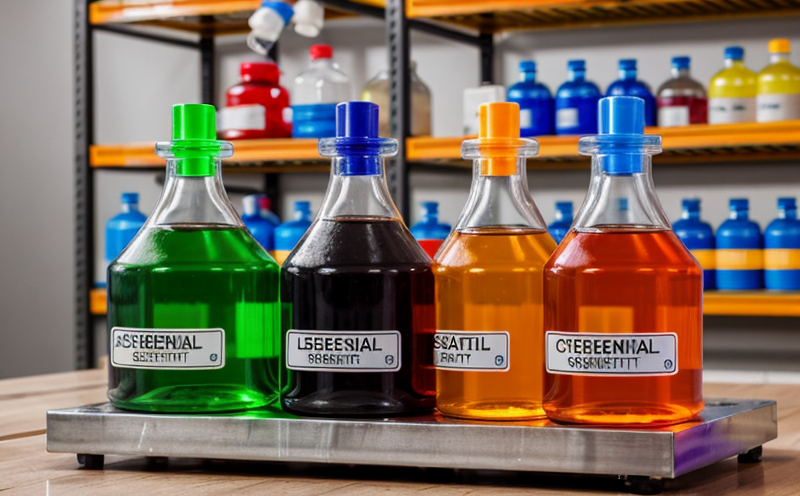Chlorinated Solvent Testing in Consumer Items
The testing of chlorinated solvents in consumer items is a critical aspect of ensuring product safety and compliance with international standards. Chlorinated solvents, such as trichloroethylene (TCE), perchloroethylene (PERC), and tetrachloroethylene (PCE), are widely used in various industries for their excellent solvent properties. However, these chemicals can pose significant health risks if not properly managed.
In consumer products, chlorinated solvents may be inadvertently introduced through the manufacturing process or as a result of improper disposal and recycling practices. This can lead to contamination of textiles, electronics, packaging materials, and other items that come into direct contact with consumers. Regulatory bodies around the world, including the U.S. Environmental Protection Agency (EPA), have strict guidelines regarding the presence of these chemicals in consumer goods.
The primary goal of chlorinated solvent testing is to identify any potential contamination from these harmful substances before they reach the market. This service ensures that products meet stringent safety and environmental standards set by international regulations such as ISO, ASTM, EN, and IEC.
During the testing process, samples are carefully prepared according to specific protocols outlined in industry standards. Instruments like gas chromatography-mass spectrometry (GC-MS) play a crucial role in detecting trace amounts of chlorinated solvents within consumer items. The analytical methods employed must be capable of providing accurate results down to parts per billion levels.
Once testing is complete, detailed reports are generated that outline the presence or absence of target compounds along with their concentrations if detected. These reports serve as important documentation for manufacturers who strive to maintain high standards of product quality and safety.
Why It Matters
The importance of chlorinated solvent testing cannot be overstated given its impact on public health, environmental protection, and regulatory compliance. Consumer products that contain even small quantities of harmful chemicals can have severe consequences for users who come into prolonged contact with such items.
- Risk of ingestion or absorption through skin
- Potential exposure during cleaning processes
- Contamination of indoor air quality if used in textiles or furnishings
By implementing rigorous testing protocols, companies can protect both their brand reputation and consumer trust. Failure to comply with relevant regulations not only leads to financial penalties but also damages long-term relationships with customers.
In addition to safeguarding human health, chlorinated solvent testing plays a vital role in environmental conservation efforts. Proper management of these chemicals helps prevent pollution incidents that could otherwise harm ecosystems and wildlife.
Environmental and Sustainability Contributions
- Reduces risks associated with improper disposal methods
- Promotes sustainable manufacturing practices by encouraging safer alternatives
- Supports recycling initiatives without compromising product integrity
The integration of chlorinated solvent testing into supply chain management processes fosters a culture of responsibility among stakeholders involved in production and distribution. It encourages the adoption of greener technologies and promotes innovation aimed at creating less harmful products.
Use Cases and Application Examples
| Item Type | Potential Chlorinated Solvent Sources | Testing Methodologies |
|---|---|---|
| Towels & Textiles | Manufacturing solvents, dyeing processes | GC-MS analysis of chlorinated compounds |
| Electronics | Cleaning agents, adhesive removers | HPLC with fluorescence detection |
| Packaging Materials | Ink formulations, laminates | Gas chromatography coupled with mass spectrometry |
These examples illustrate the diverse range of applications where chlorinated solvent testing is essential. Each case highlights unique challenges and solutions tailored to specific industries.





